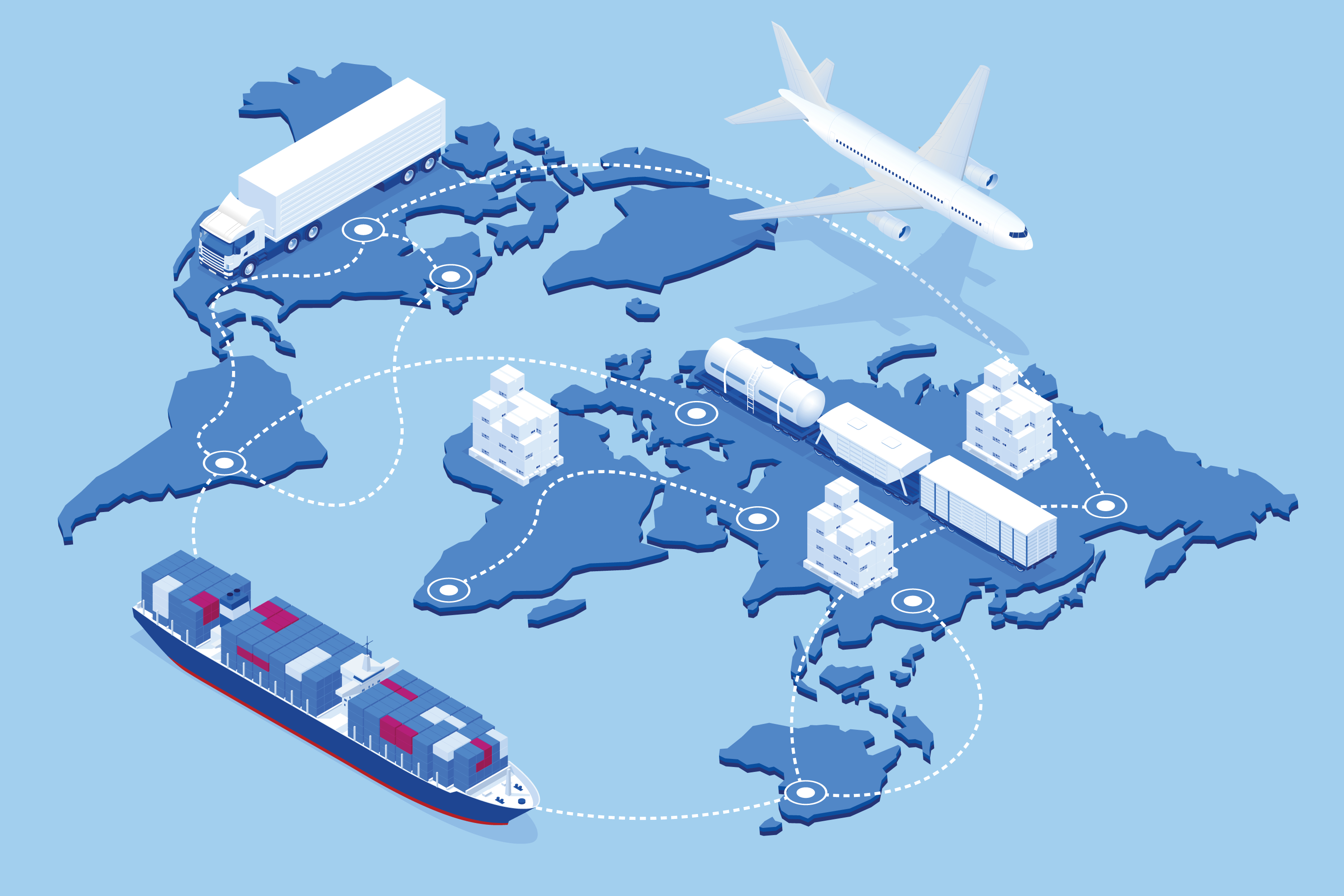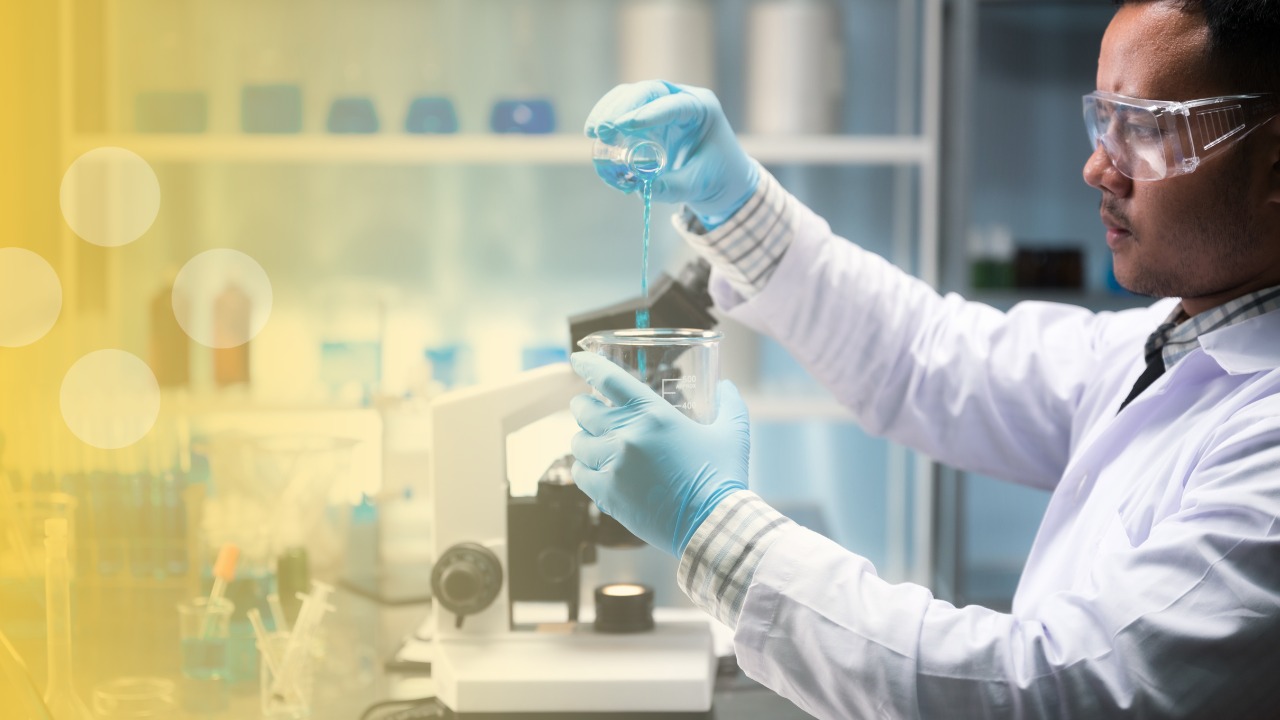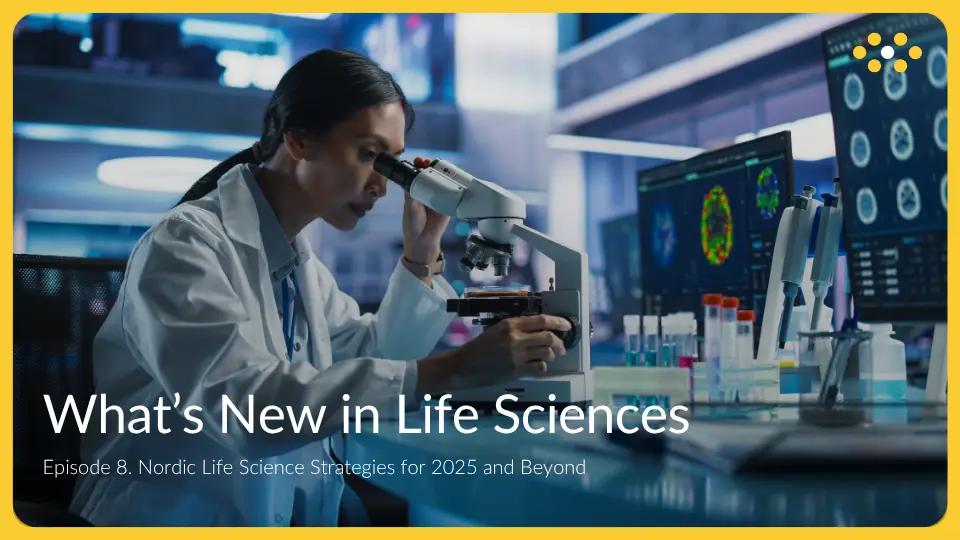From the latest developments in sustainable and responsible food production to new life-saving technologies in the field of medicine. The life sciences sector is a rapidly evolving field with a focus on innovation to ensure optimal use of knowledge and resources that benefits both people and the planet alike.
The changing technological and societal landscape asks for a life sciences sector that grows with it and takes the lead in finding solutions to the challenges of the day by continuing to improve on existing methods and developing innovative new solutions. In other words, a life sciences sector that continues to ensure the standard of life that we’re used to and, where possible, raises the bar even further. In this article, we discuss four key areas of focus for the life sciences sector in 2023 and beyond that will have a huge impact on future developments.
1. The role of supply chain, logistics and process efficiency in shaping our day to day lives will continue to grow. Whether its food production, manufacturing, or pharmaceutical drug development - how a product gets to your door will become ever more important in the years to come. In the last two years, a number of geopolitical developments like the pandemic and the war in Ukraine have drastically impacted demands placed upon global supply chain processes.
As a consequence, various organisations are now looking at ways to further predict fluctuating demand and potential market challenges, to better accommodate sudden changes in production and transportation processes. Therefore, efficiency, production and analysis of supply chains will be taking on an even more central role in business operations in the life sciences, as a better understanding and mastery of those processes will help your organisation to successfully deal with the always shifting demands of the global market.
Investing in a smooth supply chain will not only make your supply chains more resilient to potential disruptions but it will also provide your clients with greater accessibility to your products, thus allowing more people worldwide to benefit from all the innovations and gains that the medical and food sciences have to offer.

2. Precision medicine will become an increasingly important factor in determining R&D and drug development trajectories. In recent years, pharmaceutical companies have begun to move away from the previously dominant one-size-fits-all approach, in favour of a more case-specific attitude towards healthcare. Customisation in the development of medical technologies and products allows for a better match between patients and better tailored treatments based on the presence or absence of certain biomarkers or physical properties. This could potentially lead to better treatment results, a more efficient allocation of medical resources and safer medicine.
With the need for a stronger understanding of the patient and to better identify disease variants amongst other aspects, a precision-based approach to medicine is integral to progress the health sciences in a future proof direction.
3. R&D focus in general and a redefinition of R&D practices - pharmaceutical companies are rethinking how to approach research and development in light of the events of the last few years. New insights about R&D and rapid medical developments due to the Covid-19 pandemic and technological innovations in general ask for fresh new ways to think about innovation and bringing those findings into practice. Meanwhile these revisions of tried and tested methods allow companies to better meet their patient’s needs with more directed R&D as well as to protect their bottom line by revisiting their R&D priorities and objectives.
Recentering and redefinition of R&D practices can, for example, be achieved through innovation hubs, cross partnerships or incubators. Joining forces and bringing together creators, researchers and innovators with different backgrounds and objectives can (and usually will) lead to a blossoming of ideas that will not only tighten up your R&D processes but can also bring you into contact with interesting potential partners and new talent.
4. DATA/BI & AI - Artificial intelligence is increasing its presence and contribution across industries. Within the pharmaceutical & life sciences industry, AI is employed as a tool in simulations, R&D and patient identification. Smart use of data allows your organisation to learn from the information that is already in your possession and helps you get a better grip on your business and product potential, highlights key areas to focus on and optimises your understanding of your patients’ or clients’ needs.
Artificial intelligence can, for example, be used to analyse image data to measure tumor progression accurately or estimate the severity of inflammation. Machine learning can take this even one step further as it is used to perform predictive analyses, based on existing data patterns.
Furthermore, AI can play an essential role in precision medicine. Algorithms can be designed to analyse specific disease patterns and track subtle deviations, allowing the software to make predictions about a patients’ diagnosis, response to treatment and prospects, based on other patients with similar subtleties during their treatment.

In general, the continued investment in R&D and innovation across all areas of business is one of the main trends within the life sciences sector. Especially in the areas of artificial intelligence and precision medicine, game changing innovations will spurt more efficient, smarter, and altogether better methods and treatments in the fields of pharmacy, medicine, and food production. The new insights gained will thus provide the field with the fresh energy required to continue to improve lives everywhere.
Meanwhile, the more traditional logistics department will remain a central focus aspect for your organisation to ensure the adequate and efficient care that you want to give to your clients, patients or partners.
Here at Amoria Bond, we foresee a year of great collaboration and growth within the life sciences industry and we’re here to help you utilise this by attracting the right professionals. Amoria Bond supports companies in finding the right experts for life sciences positions with proven methods and a wide range of services. Our team does this by using state-of-the-art practices to accelerate the recruitment process of highly skilled professionals for you.
We have excellent industry knowledge, and work with you to find the best person for your open life sciences vacancies. Our role is not just to find and place talented professionals - we offer specialised recruitment services that encompass much more: From market and competitive analysis to optimising the entire recruitment process, we cover the entire cycle that hiring a new employee requires. Our services reduce your recruitment time, lowering your recruitment costs and improving the overall quality of the process.
We’re proud of our reputation and track record for delivering quality, relevant professionals. Find out more about our recruitment and staffing services and how we can help you.
Don't hesitate, contact my team and me today to learn more about our specialised recruitment services.






